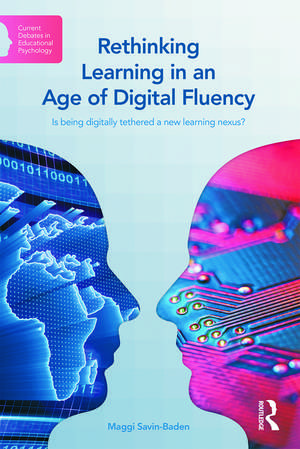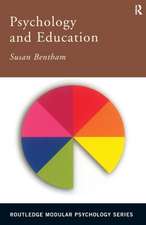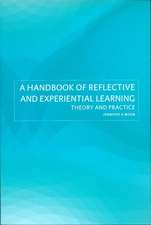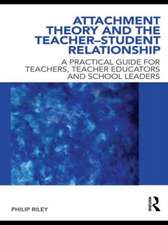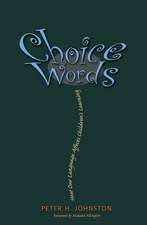Rethinking Learning in an Age of Digital Fluency: Is being digitally tethered a new learning nexus?: Current Debates in Educational Psychology
Autor Maggi Savin-Badenen Limba Engleză Paperback – 16 mar 2015
Digital connectivity is a phenomenon of the 21st century and while many have debated its impact on society, few have researched relationship between the changes taking place and the actual impact on learning. Rethinking Learning in an Age of Digital Fluency examines what kind of impact an increasingly connected environment is having on learning and what kind of culture it is creating within learning settings.
Engagement with digital media and navigating through digital spaces with ease is something that many young people appear to do well, although the tangible benefits of this are unclear. This book, therefore, will present an overview of current research and practice in the area of digital tethering, whilst examining how it could be used to harness new learning and engagement practices that are fit for the modern age. Questions that the book also addresses include:
- Is being digital tethered a new learning nexus?
- Are social networking sites spaces for co-production of knowledge and spaces of inclusive learning?
- Are students who are digitally tethered creating new learning maps and pedagogies?
- Does digital tethering enable students to use digital media to create new learning spaces?
| Toate formatele și edițiile | Preț | Express |
|---|---|---|
| Paperback (1) | 434.29 lei 6-8 săpt. | |
| Taylor & Francis – 16 mar 2015 | 434.29 lei 6-8 săpt. | |
| Hardback (1) | 997.90 lei 6-8 săpt. | |
| Taylor & Francis – 13 mar 2015 | 997.90 lei 6-8 săpt. |
Preț: 434.29 lei
Nou
Puncte Express: 651
Preț estimativ în valută:
83.10€ • 86.59$ • 68.81£
83.10€ • 86.59$ • 68.81£
Carte tipărită la comandă
Livrare economică 03-17 aprilie
Preluare comenzi: 021 569.72.76
Specificații
ISBN-13: 9780415738187
ISBN-10: 0415738180
Pagini: 178
Ilustrații: 2 black & white illustrations, 6 black & white tables, 2 black & white line drawings
Dimensiuni: 156 x 234 x 10 mm
Greutate: 0.26 kg
Ediția:1
Editura: Taylor & Francis
Colecția Routledge
Seria Current Debates in Educational Psychology
Locul publicării:Oxford, United Kingdom
ISBN-10: 0415738180
Pagini: 178
Ilustrații: 2 black & white illustrations, 6 black & white tables, 2 black & white line drawings
Dimensiuni: 156 x 234 x 10 mm
Greutate: 0.26 kg
Ediția:1
Editura: Taylor & Francis
Colecția Routledge
Seria Current Debates in Educational Psychology
Locul publicării:Oxford, United Kingdom
Public țintă
PostgraduateCuprins
Introduction
Chapter 1 Useful tethering
Chapter 2 The landscape of learning
Chapter 3 Piracy and Pedagogies
Chapter 4 Learning on the move? Liquidity and Meshwork
Chapter 5 Being digitally tethered
Chapter 6 Learning together alone
Chapter 7 Digital fluency
Chapter 8 Tethered Identities?
Chapter 9 Digital Surveillance and Tethered Integrity
Chapter 10 Wizards and brinkmanship
Glossary
References
Chapter 1 Useful tethering
Chapter 2 The landscape of learning
Chapter 3 Piracy and Pedagogies
Chapter 4 Learning on the move? Liquidity and Meshwork
Chapter 5 Being digitally tethered
Chapter 6 Learning together alone
Chapter 7 Digital fluency
Chapter 8 Tethered Identities?
Chapter 9 Digital Surveillance and Tethered Integrity
Chapter 10 Wizards and brinkmanship
Glossary
References
Descriere
Digital connectivity is a phenomenon of the 21st century and while many have debated its impact on society, few have researched relationship between the changes taking place and the actual impact on learning.
Engagement with digital media and slipping through digital spaces with ease is something that many (young) people appear to do well, although the tangible benefits of this are unclear. Research to date has largely focused on the negative effects of the ‘always on’ culture, characterized by engaging with Facebook, Twitter, and 24 hour texting, but few have examined the advantages of this constant ‘digital tethering’. Further there are also unfounded negative opinions about it that reverberate across not only the media but also academia.
Engagement with digital media and slipping through digital spaces with ease is something that many (young) people appear to do well, although the tangible benefits of this are unclear. Research to date has largely focused on the negative effects of the ‘always on’ culture, characterized by engaging with Facebook, Twitter, and 24 hour texting, but few have examined the advantages of this constant ‘digital tethering’. Further there are also unfounded negative opinions about it that reverberate across not only the media but also academia.
